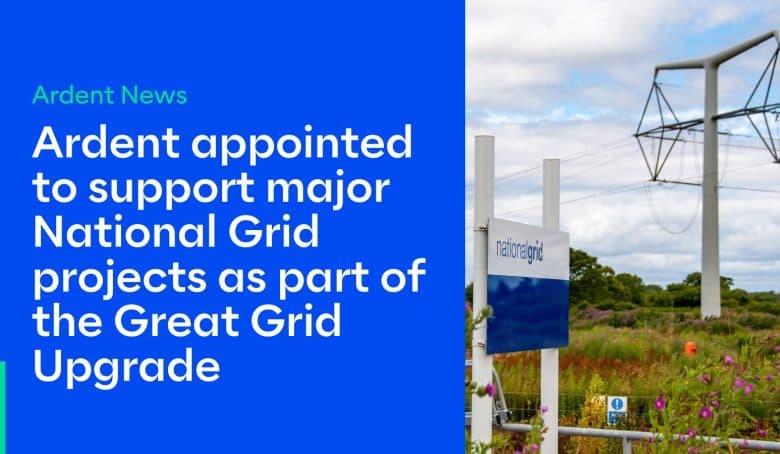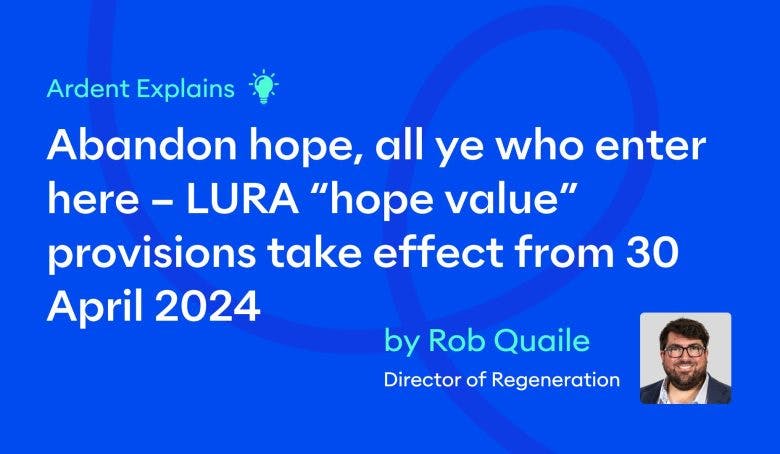Insights

Ardent appointed to support major National Grid projects
Ardent is delighted to share that we have been appointed to support National Grid on three major projects supporting the Great Grid Upgrade. The...

Ardent Sponsors the Society of Land Referencers’ Landmark Conference
Ardent is proud to be a key sponsor of the upcoming Land with Certainty Conference, hosted by the Society of Land Referencers in collaboration with...

CPO or CP-No: The Essential Role of Viability Assessment In Successfully Promoting Compulsory Purchase Orders
Viability assessment plays a crucial role in Compulsory Purchase Orders (CPOs), serving as a critical tool for evaluating the economic feasibility...

Ardent lines up Island of Ireland expansion
We, at Ardent, are thrilled to announce our expansion across Ireland. With our office located in Fitzwilliam Square, Dublin, we are set to grow our...

Abandon hope, all ye who enter here – LURA “hope value” provisions take effect from 30 April 2024
The Levelling-up and Regeneration Act 2023 (Commencement No.3 and Transitional and Savings Provision) Regulations 2024 were made on 18 March 2024,...

The Price of Light: Can Section 203 Offer Developers a Brighter Future?
In the complex world of property development, one often-overlooked obstacle can cast a long shadow: rights of light. This legal right grants...

Levelling Up or Landlocked? Hope Value Takes Centre Stage in Regeneration Debate
Following Royal Assent in late 2023, the Levelling Up and Regeneration Act has landed, bringing with it a whirlwind of promises and anxieties....

Sharon Daly appointed as Non-Executive Director
Ardent is delighted to announce the key appointment of Sharon Daly as a non-executive director to help drive the next wave of growth. Sharon is the...

Government plans to speed up electricity network connections – Help or hindrance?
Ardent has welcomed a new Government plan to speed up connections to the electricity network – but says some of the detail could end up hindering the...

New offices in Glasgow and Leeds signal Ardent’s continued growth
We are delighted to announce that Ardent has moved into new locations in Glasgow and Leeds following a series of new hires – and plans for further...

Cheshire Lounge and ‘Injurious Affection’ – Where’s the Affection?
by Mark Warnett, Director of Compensation Photo Credit: Stott Hall Farm cc-by-sa/2.0 – © Peter McDermott –...

Ardent launch Training Academy
Ardent is delighted to announce that we have launched our own training academy to develop our consultants as part of ambitious growth plans. We have...









